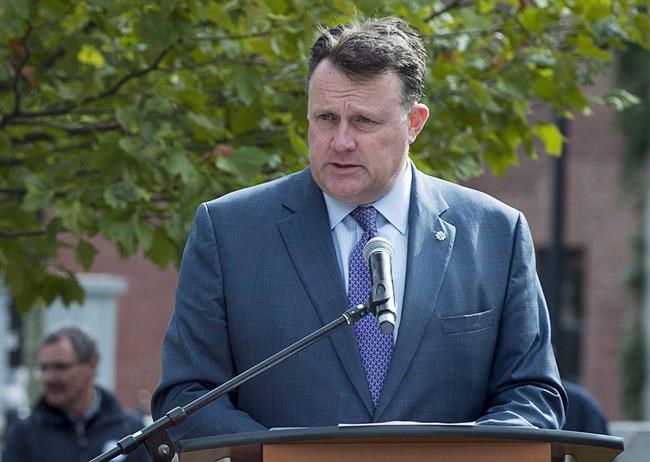Cities ask parties to pledge transit help after pandemic eats into ridership revenues
Advertisement
Read this article for free:
or
Already have an account? Log in here »
To continue reading, please subscribe:
Monthly Digital Subscription
$1 per week for 24 weeks*
- Enjoy unlimited reading on winnipegfreepress.com
- Read the E-Edition, our digital replica newspaper
- Access News Break, our award-winning app
- Play interactive puzzles
*Billed as $4.00 plus GST every four weeks. After 24 weeks, price increases to the regular rate of $19.00 plus GST every four weeks. Offer available to new and qualified returning subscribers only. Cancel any time.
Monthly Digital Subscription
$4.75/week*
- Enjoy unlimited reading on winnipegfreepress.com
- Read the E-Edition, our digital replica newspaper
- Access News Break, our award-winning app
- Play interactive puzzles
*Billed as $19 plus GST every four weeks. Cancel any time.
To continue reading, please subscribe:
Add Free Press access to your Brandon Sun subscription for only an additional
$1 for the first 4 weeks*
*Your next subscription payment will increase by $1.00 and you will be charged $16.99 plus GST for four weeks. After four weeks, your payment will increase to $23.99 plus GST every four weeks.
Read unlimited articles for free today:
or
Already have an account? Log in here »
Hey there, time traveller!
This article was published 02/09/2021 (1514 days ago), so information in it may no longer be current.
OTTAWA – Canada’s municipal leaders are asking federal parties for promises to pump more money into local transit systems to combat pandemic-induced declines in revenues.
Ridership dropped precipitously last year when public health officials ordered all non-essential workers to stay home, depriving municipal coffers of the money needed to run and maintain buses, subways and light-rail systems.
Halifax Mayor Mike Savage said his city was losing between $2 million and $4 million a month, adding that larger cities like Vancouver and Toronto had even larger losses.

The federal government kicked in cash last year through the “safe restart” agreements with provinces to help with the shortfall, but that was one-time funding for what Savage described as an ongoing concern.
It’s why he and other leaders with the Federation of Canadian Municipalities are asking federal parties to commit themselves to providing multi-year funding for cities to close the budgetary gap if any are elected to govern.
Savage said there is still a shortfall in local budgets that, left unfilled, could become a financial sinkhole for cities, and prevent many from expanding and modernizing transit options that would create jobs and economic activity coming out of the COVID-19 economic downturn.
“We don’t know how long it’s going to take to get our transit back,” said Savage, chair of FCM’s big city mayors’ caucus, during a virtual press conference Thursday.
The ask is one of several the Federation of Canadian Municipalities is making as part of its full slate of campaign requests from parties that also includes proposals for housing, homelessness and the environment.
“We’re talking about renewing core infrastructure, building modern transit, tackling the housing prices, protecting people from climate extremes,” said FCM president Joanne Vanderheyden, who is also mayor of the Municipality of Strathroy-Caradoc in Ontario.
“These truly are not just nice-to-haves, these are essential for Canadians coast to coast to coast, regardless of who is in power at the federal level.”
Rural leaders are looking for a long-term solution to fund inter-community bus routes to maintain key transit connections that are disproportionately relied on by women, racialized and Indigenous people, as well as students — all of whom were hit hard economically during the pandemic.
Ray Orb, chairman of FCM’s rural forum, also highlighted an ongoing request from rural municipalities to expand broadband internet connections that successive governments have tried to tackle.
Specifically, FCM is asking for at least $150 million more annually over the next four years for small internet service providers and communities to bring broadband to the country’s hardest-to-reach areas.
“It’s money well spent,” said Orb, who is also president of the Saskatchewan Association of Rural Municipalities.
“It’s integral to the national economy, to be able to get our economy moving again, and if we don’t spend that money, I think we’re going to be a lot worse off.”
On transit for urban centres, Savage and other mayors are looking to get commitments to permanently double a direct transfer program for cities, once known as the “gas tax fund,” to $4.6 billion and grow it annually by 3.5 per cent, instead of two per cent, to reflect what cities say are “construction inflation realities.”
There is also the reality of federal finances that took a sharp turn with historic deficits and debt levels in response to COVID-19. Savage acknowledged the potential for belt-tightening federally to fight deficits, but argued there is an equal opportunity to fight the country’s infrastructure deficit.
“These are investments that we need to make as cities (for) the future,” Savage said.
“People recognize the need. We saw that during COVID that people respond positively to governments that invest in people, that invest in infrastructure.”
This report by The Canadian Press was first published Sept. 2, 2021.
















